TMJ Treatment – Clute, TX
Relieving Your Chronic Jaw Pain
Chronic facial pain, such as headaches, ear pain, and temporomandibular joint dysfunction, is extremely common. In fact, it’s so common that 15% of the American population suffers from some of them. Temporomandibular joint disorder (TMD) is an extremely common condition that over 10 million Americans suffer from. This is a chronic pain condition in which your temporomandibular joint (TMJ) — located on either side of your head — malfunction or succumb to a disorder. The temporomandibular joints connect your jaw to your face and essentially control all of your jaw-related movements such as eating, talking, speaking, etc. When these joints don’t work correctly, you suffer from TMD. Call us today to find out if you could benefit from TMJ treatment in Clute.
Why Choose Woodshore Family Dentistry for TMJ Treatment?
- Full Menu of In-House Dental Services
- Multiple Dental Experts on a Single Team
- Customer Service-Oriented Dental Staff
What Are the Causes of Sudden TMJ Pain?
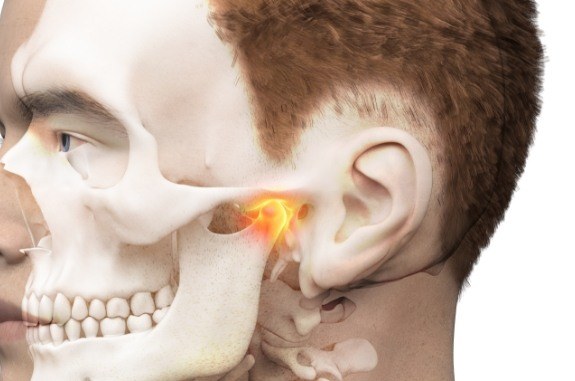
The temporomandibular joint is responsible for a wide range of motion. It acts as a hinge for your mouth and involves a sliding action. As such, it can also get easily damaged. Parts of the TMJ that interact with the bones have cartilages and small discs that can absorb shock to facilitate smooth jaw movement. When this part of the joint gets damaged, you suffer from sudden TMJ pain.
The following are some of the primary causes of temporomandibular joint disorder:
- The small discs eroding or getting misaligned.
- Conditions like arthritis that can damage the cartilage.
- The TMJ getting injured or damaged.
As you can see, TMJ syndrome can occur for various reasons, which is why it’s difficult to pinpoint the root cause of the disorder. You can suffer from sudden TMJ pain due to jaw injuries, a sudden injury to the head or neck, whiplash action of the neck, bruxism, and many other reasons. There are many causes of TMD.
What Are the Signs and Symptoms of TMJ?
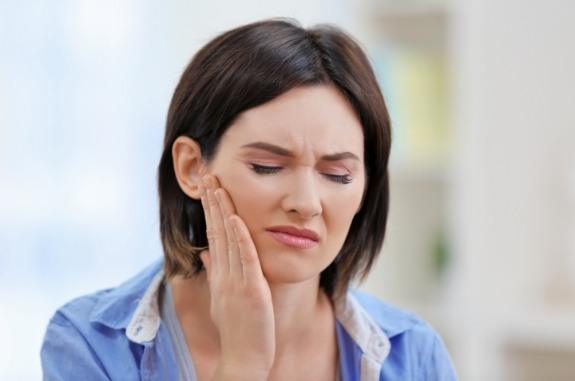
TMJ symptoms are extremely varied. If you suffer from some of these symptoms, you may have TMD:
- Tinnitus, which is a ringing sensation in the ears.
- Dizzy sensation and constant headaches.
- Chronic pain in the face.
- Pain in either the shoulders or the neck that gets worse over time.
- Swelling in the face.
- Exhaustion and fatigue around the mouth.
- Jaws feeling tender.
- Chronic pain around the jaws.
- Inability to chew, talk, or speak properly without pain.
- Inability to stretch your mouth open properly.
- Rigid jaws.
- A clicking or popping sound whenever you move your jaws.
- Sensitivity in your teeth, even if there’s no dental decay or issues.
- Misalignment of teeth.
Risk Factors of TMJ Disorder

You have a higher risk of TMJ disorder if you suffer from the following conditions:
- Arthritis, Rheumatoid Arthritis, or Osteoarthritis — These conditions damage your cartilage, which prevents the TMJ from moving correctly and causes TMD.
- Injuries to your jaws.
- Bruxism/Teeth Grinding — This causes you to grind your teeth all the time, which applies considerable pressure on your jaws and can lead to TMD.
- Connective Tissue Disease — This is yet another issue that applies great pressure on the TMJ.
How to Treat TMJ
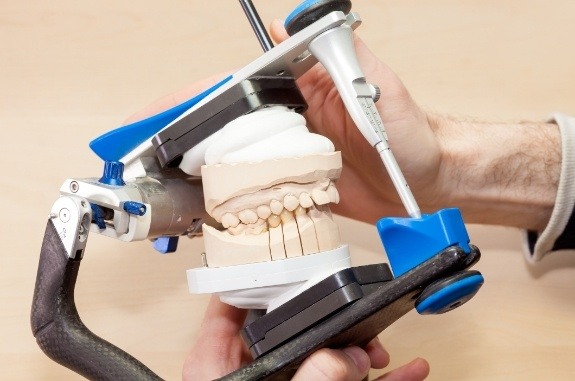
To treat TMJ, the dentist has to first diagnose the root cause of your TMJ disorder. It’s important to go to a good dental clinic in which the dentist will study your conditions, diagnose the root cause of TMJ, and then treat it accordingly.
TMJ Diagnosis

TMJ can occur because of several reasons, including sinus issues, tooth decay, gingivitis, and many others. The dentist will discuss your medical history and try to detect signs of these conditions to rule them out. You should also give your dentist a complete list of all TMJ symptoms that you’re experiencing — don’t leave anything out. The dentist will also run some diagnostic tests to check if you have TMJ. They’ll listen to your jaw movements to detect any popping or clicking sounds. The dentist may also recommend further tests such as X-rays, CT scans, or even an MRI. This will help the dentist identify the cause of TMJ and proceed with the treatment accordingly.
Medicinal TMJ Treatment
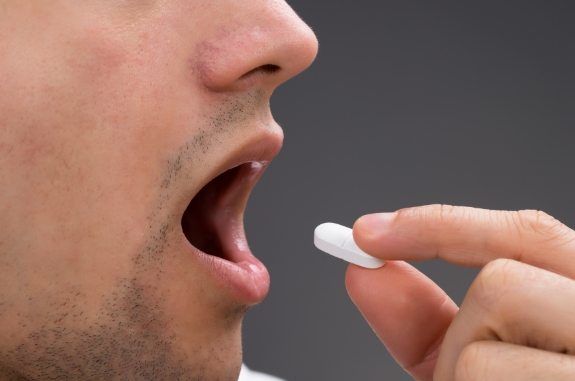
You can’t cure TMJ and TMD with medicines. But if you’re suffering from severe pain, the dentist may prescribe some medicinal TMD treatments to relieve the pain. Prescribed medicines may include ibuprofen, tricyclic antidepressants to help with sleep, or muscle relaxants that can ease severe contraction and spasm pains.
Therapeutic TMJ Treatment
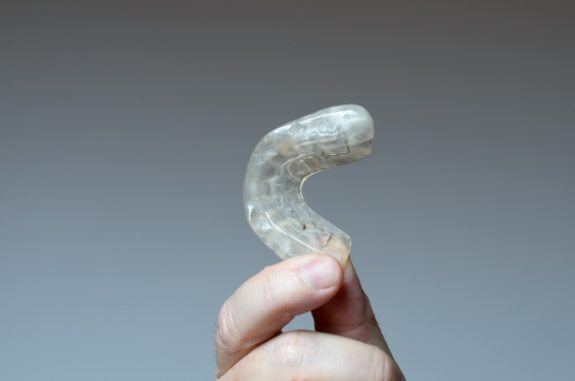
Depending on your specific condition and the dentist, you may be recommended one or several of these treatments:
- Mouthguards: Mouthguards or splints are used if your TMD is caused by bruxism or teeth grinding. You have to wear this soft appliance in your mouth so that your upper and lower teeth don’t grind against each other. While this won’t treat bruxism, it will minimize the impact of continuous teeth grinding, which will also help treat TMJ.
- Physical Therapy: TMJ can also be caused by jaw injuries. In that case, the dentist will recommend a series of physical exercises and movements with which you can condition and strengthen your muscles. This will gradually ease TMJ pain.
- Counseling: In some cases, bruxism and night grinding (which can cause TMJ) are, in turn, caused by psychological issues like stress. In that case, the dentist may recommend counseling to deal with the underlying issues that are causing bruxism, which is also causing TMD.
Surgical TMJ Treatment

There are also several surgical TMD treatments you can opt for. But the dentist will likely recommend these only after the aforementioned non-invasive treatments have failed. Some of the most popular surgical treatments for TMJ include TMJ Arthroscopy, Open-Joint Surgery, Arthrocentesis, Corticosteroid Injections, and Modified Condylotomy.
I Need a Checkup & Cleaning I Need a Dentist for My Child I am Worried About Gum Disease I Have a Cavity or Broken Tooth I am Missing One or More Teeth I Want to Enhance My Smile I Want a Straighter Smile I am Concerned About Sleep Apnea I am Scared of the Dentist I Have a Dental Emergency View Our Services


